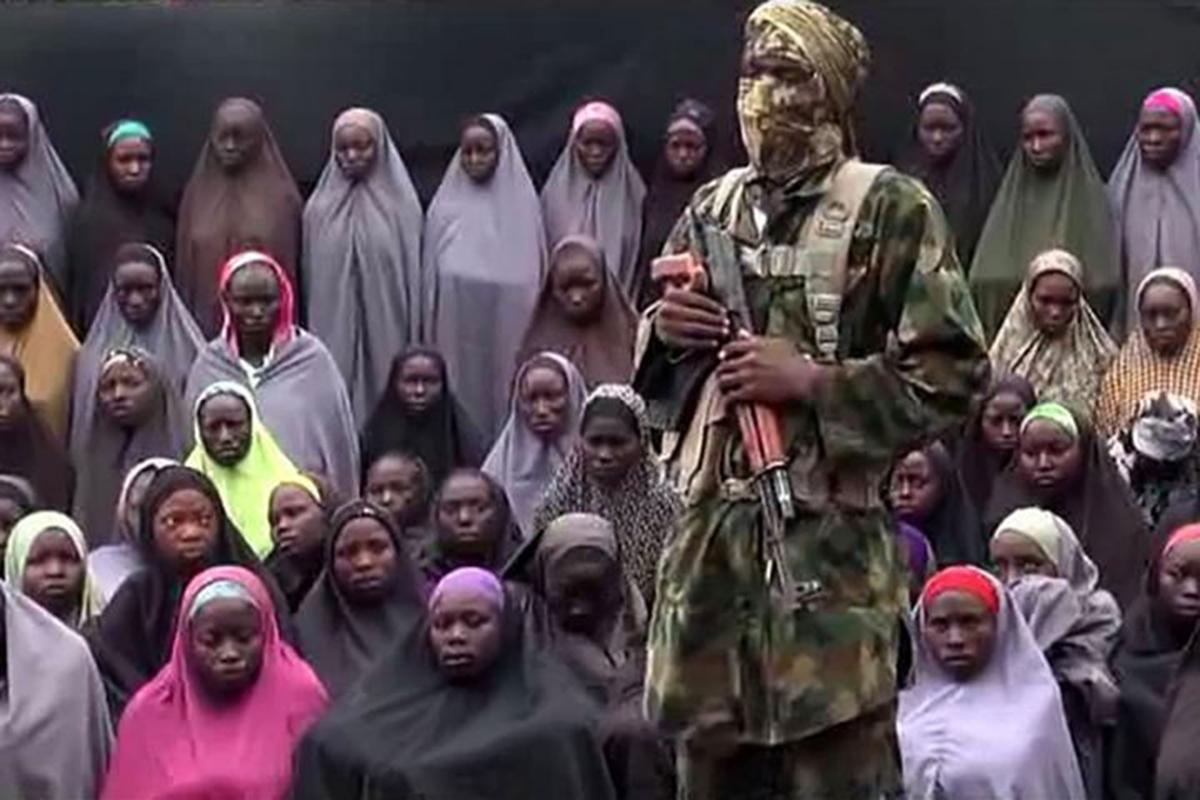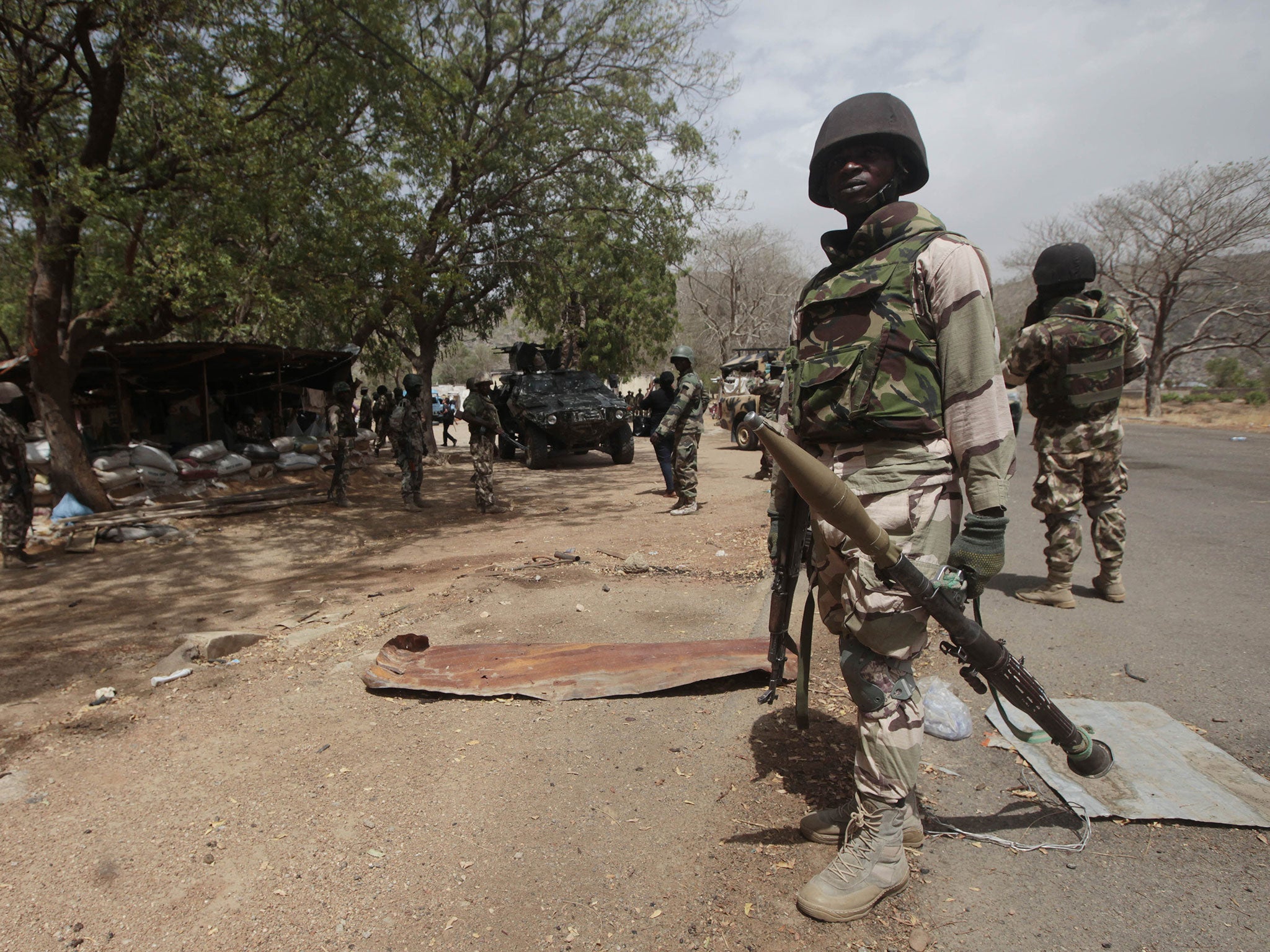Boko Haram: Who are the Nigerian jihadist insurgents and how are they funded?
Islamist militants have killed over 20,000 people in a decade, displaced two million more and made kidnapping and violence a reality of life in impoverished northern states
Boko Haram continues to terrorise Nigeria after almost a decade of violence.
The Islamist insurgents – based in the northern states of Yobe, Kano, Bauchi, Borno and Kaduna – have sparked a humanitarian crisis in the country, leaving more than 20,000 people dead and displacing a further two million through a sustained campaign of domestic terror, attacking government buildings, military bases and schools.
Its members seek to overthrow Nigeria's political establishment and found an Islamic state under strict Sharia law in West Africa’s biggest economy.
Boko Haram was inaugurated in 2002 by the cleric Mohammed Yusuf in the city of Maiduguri. He established a mosque and school in order to preach Wahhibism, an ultra-conservative form of Islam. The organisation’s name in Arabic was Jama’atu Ahlis Sunna Lidda’awati wal-Jihad, which translates as “People Committed to the Propagation of the Prophet’s Teachings and Jihad”.
The cult has become more widely known by its translation into Hausa: “Western education is forbidden.”
Yusuf and his acolytes believed Western Christian teaching, introduced to the region by British missionaries under colonialism following the fall of the Sokoto caliphate in 1903, was responsible for entrenching the status quo in a country in which 60 per cent of the population live in dire poverty on less than $1 a day.
Nigeria’s wealth is concentrated in the predominantly Christian south and the group sought to foster and cultivate resentment among local Muslims, particularly the unemployed. Boko Haram stands against all aspects of Western culture, prohibiting its adherents from wearing imported clothing or voting in national elections.
Yusuf’s school quickly became radicalised as a jihadi recruitment camp and is rumoured to have received a portion of the $1.8m (£1.3m) Osama bin Laden’s al-Qaeda distributed in West Africa to bankroll Islamist terror in the aftermath of 11 September
Their first known attacks came in December 2003 with a series of assaults on Yobe police stations on the Niger border, in which 200 militants were involved.
Boko Haram quietly built their regional influence thereafter before becoming fully militarised in 2009, staging an uprising in Bauchi that summer that saw its fighters attack police officers.
Seven hundred of their own men were killed when a military task force responded. Yusuf was arrested and subsequently died in police custody, officially during an escape attempt but Boko Haram remains convinced he was murdered.
Yusuf was succeeded by his ruthless deputy Abubakar Shekau and, over the next five years, the group continued to conduct a reign of terror, with gunmen on motorbikes carrying out drive-by assassinations on policemen, politicians or clergymen who dared to speak out against them.
The attacks became steadily more ambitious, culminating in the car bombing of a United Nations compound in Abuja on 26 August 2011 in which 23 died and 75 were injured.
Further incidents followed including bomb attacks on villages, markets, bus depots and prisons and the kidnapping of a French family of seven on holiday at a national park across the border in Cameroon on 19 February 2013.
Ransoms came to provide a lucrative source of income for Boko Haram, the group commonly taking hostages as bargaining chips when negotiating with the authorities. Militants also sold captive women and children as slaves on Africa’s black market.
This approach made international headlines when Boko Haram raided a girl’s boarding school in Chibok on 14 April 2014, taking 276 of the residents captive and provoking outcry around the world.
“I abducted your girls. I will sell them in the market, by Allah... there is a market for selling humans. Allah says I should sell. He commands me to sell. I will sell women. I sell women,” Shekau said in a YouTube video at the time.

Michelle Obama, the then-US first lady, spearheaded the #BringBackOurGirls campaign on social media but, at the time of writing, as many as 113 are still being held, presumably in Boko Haram’s Sambisa Forest stronghold.
Fifty-seven escaped their captors en masse in July 2014, 21 were released after negotiations with the Nigerian and Swiss governments and the Red Cross in October 2016, another 82 in further talks in May 2017, while several girls broke free of their own accord, two of whom bore infants fathered by captors who had “married” them and displayed the symptoms of Stockholm syndrome.
Other atrocities carried out by the group include the use of child captives as suicide bombers, typically under the influence of drugs.
In August 2014, Shekau appeared in a propaganda video flanked by masked gunmen to declare: “We are in an Islamic caliphate. We have nothing to do with Nigeria. We don’t believe in this name.”
The following March, he pledged Boko Haram’s support for Isis, apparently turning his back on al-Qaeda, an organisation of whom his spokesman had said in 2011: “[They] are our elder brothers. We enjoy financial and technical support from them. Anything we want from them we ask them.”
Around this time, cracks began to show. The militants were pushed back into the forests by a coalition of fighters from Nigeria, Cameroon, Chad and Niger, a retreat that enabled the discovery of a mass grave containing 400 bodies in the town of Damask.

In April 2015, 450 women and girls were rescued from their clutches and, in August 2016, Isis released a video claiming that Shekau had been replaced as leader by Abu Musab al-Barnawi, the son of Mohammed Yusuf.
Shekau denied this, insisting he was still in control, but the communication fuelled speculation that Boko Haram had been split into two warring factions.
In March 2018, the group lost further ground when a Nigerian and Cameroonian task force liberated a 1,000 women and children from the villages of Malamkari, Amchaka, Walasa and Gora.
In mid-July, militants carried out two attacks in quick succession – one on an army base in Jilli in Yobe, another in a convoy outside of Bama in Borno.
Counter-terror expert Yan St-Pierre told AFP that he believed the twin assaults could represent two new divisions battling for supremacy.
For his part, Nigeria’s president Muhammadu Buhari, elected on a promise he would rid the country of Boko Haram, insisted the situation was in “a post-conflict stabilisation phase”.
But Yan St-Pierre is less confident about the terrorists' waning powers: “The supply of Boko Haram fighters is always there, either through kidnapping or economic reasons, they tap into a wide pool of personnel, they find a way to replenish their strength.”
Boko Haram has been well supplied with cash and weapons from its earliest days, its men armed with AK-47s and rocket-propelled grenade launchers thanks to funds received from other terror groups, ransoms, the sale of slaves and black market ivory obtained through poaching and from regional bank robberies.
Join our commenting forum
Join thought-provoking conversations, follow other Independent readers and see their replies
Comments